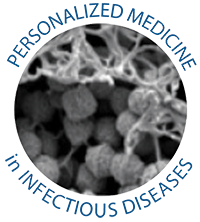FOR THE PUBLIC
Despite access to modern intensive care and antibiotics, acute bacterial infections, such as severe sepsis and deep tissue infections are life-threatening conditions affecting several millions of persons worldwide.
Skin and soft tissue infections are common and range in severity from superficial uncomplicated infections to life-threatening deep tissue infections, which spread rapidly and often require extensive surgery, sometimes even amputation. Severe sepsis that is caused by the body’s response to the infection is a dominant cause of death in the intensive care.
Clinically these severe infections are challenging as they are frequently underdiagnosed due to vague initial symptoms and patients may deteriorate rapidly. This is further complicated by the heterogenous nature of these infections including different pathogenic bacteria, disease mechanisms and host risk factors. Hence, there is an urgent need for rapid identification of patients and improved therapeutic strategies in order save lives. It is clear that the disease severity is closely linked to the individual’s host defense to the bacterial infections, which can be highly varying. These results indicate that this needs to be considered to achieve a rapid diagnosis and a therapy that is tailored to the patient’s need.
Several efforts are ongoing in the field to achieve this so-called diagnosis and personalized medicien. Multinational consortia, such as INFECT, PerAID, PerMIT, are dedicated to understanding the mechanisms behind these severe acute bacterial infections and thereby identify new targets for diagnosis, prognosis, and treatment. The researcher is conducted by multidisciplinary researchers and clinicians that conduct comprehensive studies on patient data and samples as well as advanced experimental infection model.
More information on necrotizing fasciitis and sepsis provided by the patient organizations
Lee Spark NF foundation (https://nfsuk.org.uk) and Sepsisfonden (http://sepsisfonden.se/)
















